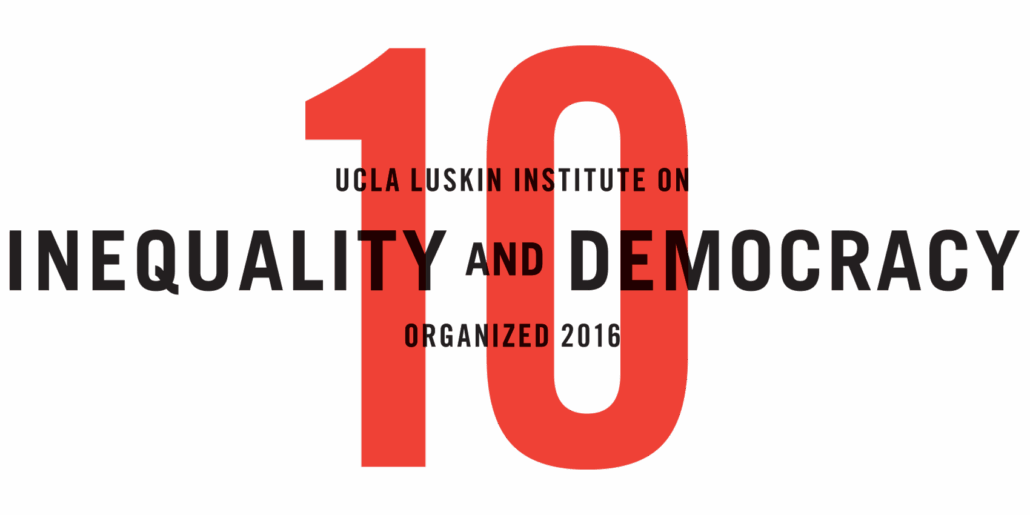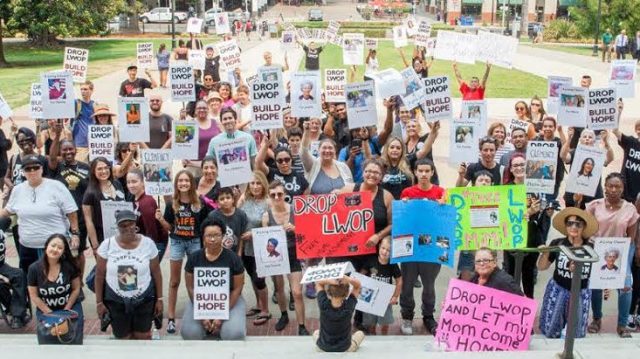Sacramento rally, organized by the California Coalition for Women Prisoners (CCWP) and Californians United for a Responsible Budget (CURB), is part of the Drop LWOP campaign. Image credit: droplwop.com
UC Extreme Sentencing Project
Grace K. Hong, Gender Studies & Asian American Studies, UCLA
The UC Sentencing Project is a partnership between faculty, staff, and students at UCSD and UCLA and the California Coalition for Women Prisoners (CCWP) that examines racial disparities in sentence length across the state of California. Using a participatory action research methodology and in consultation with an advisory board of formerly incarcerated people, the commission conducts qualitative and quantitative studies of 1) country-by-country variation in sentencing by race; 2) the racialized differences created by mechanisms by which sentences are lengthened – prior to court, in court, during incarceration, and in the parole process; and 3) the impacts of long-term sentencing that go beyond the incarceration of an individual, such as mental and physical health effects that endure after release, effects on families of incarcerated people, and, most broadly, social and economic impacts to racialized communities that have disproportionately higher rates of incarceration.
Over two days in December of 2019, we conducted a pilot study consisting of peer interviews and focus groups for 22 people formerly incarcerated in California women’s prisons. The research team provided training in interview techniques to all participants, who then interviewed each other about their experiences being charged, tried, sentenced, incarcerated, and released. In these interviews and larger group discussions, participants identified patterns along the lines of race and gender in the mechanisms by which sentence length is extended, developing a picture of the larger personal and community racialized ramifications of longer-term sentences in California.
Our work adds analysis of sentence length and broad impact on racialized communities in California to existing studies of mass incarceration. In terms of action, we generate factsheets and reports for policymakers, lawyers, community-based organizations, and individuals organizing against the racial disparities of mass incarceration. Participants in the qualitative pilot study noted that their peer interviews were some of the first opportunities they had had to have structured discussion about their sentences, and that identifying systemic patterns helped alleviate a sense of stigma they had carried individually. In addition to potential policy shifts advancing racial justice, the commission intends reports to serve as a resource to aid people – primarily people of color, women and queer and transgender/gender non-conforming people – navigating their own cases, move beyond the stigmas of incarceration, and build a sense of collective project.
Read >> Maximizing Time, Maximizing Punishment: The Lived Experience of Long-Term Sentences in California Women’s Prisons (Published October 17, 2023)




